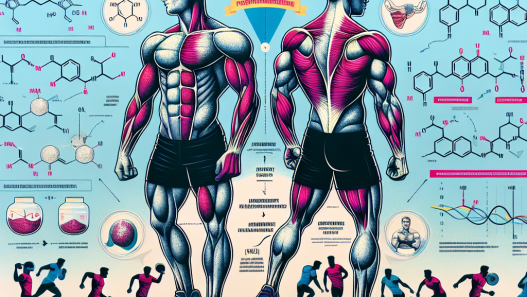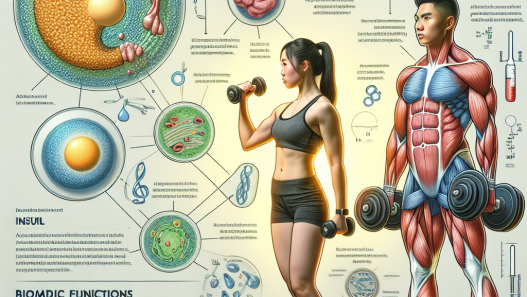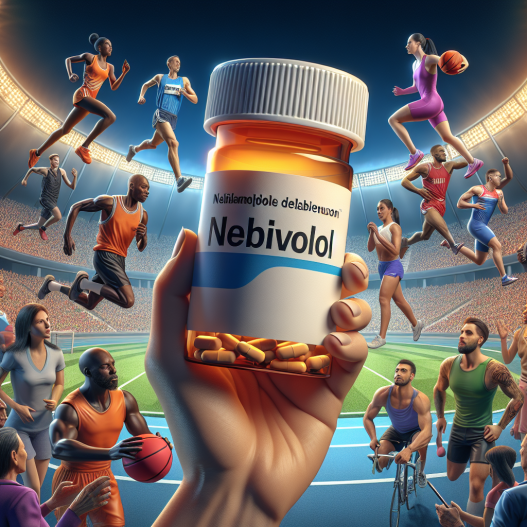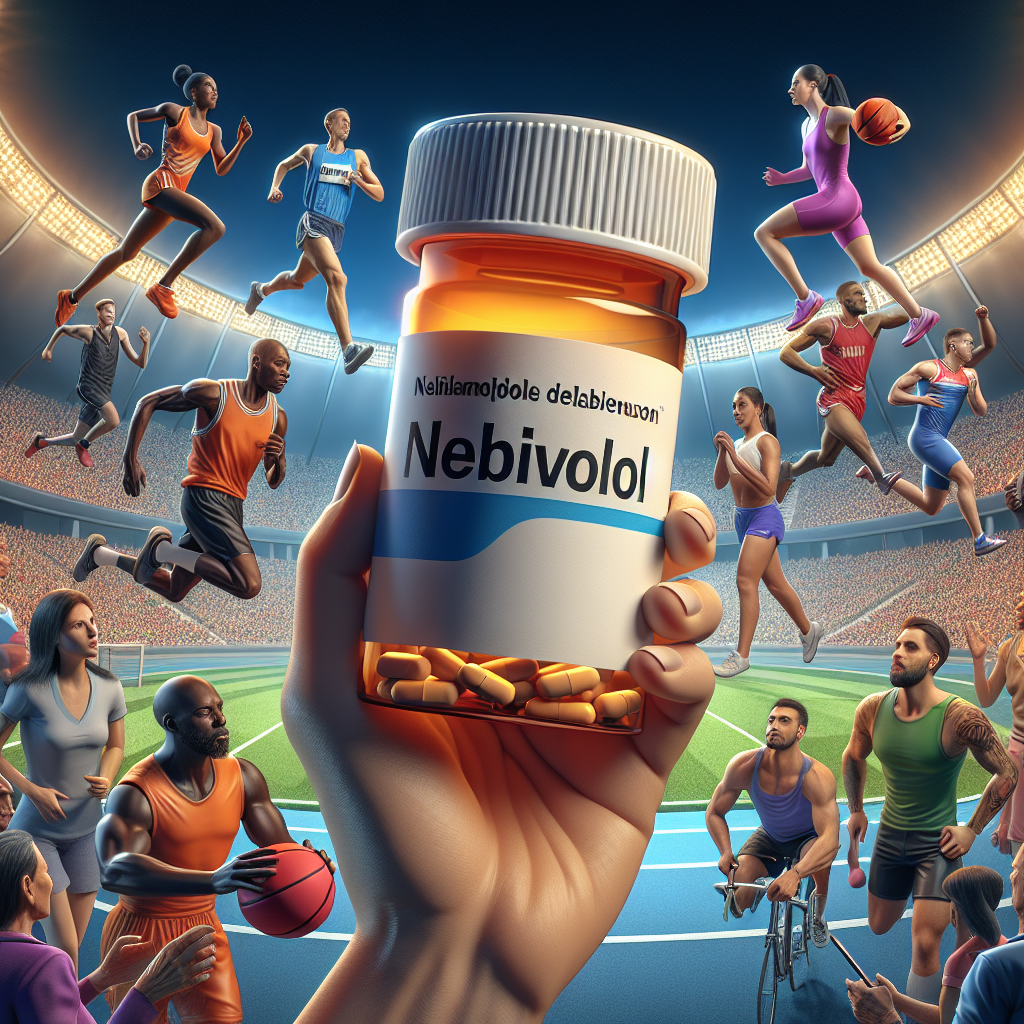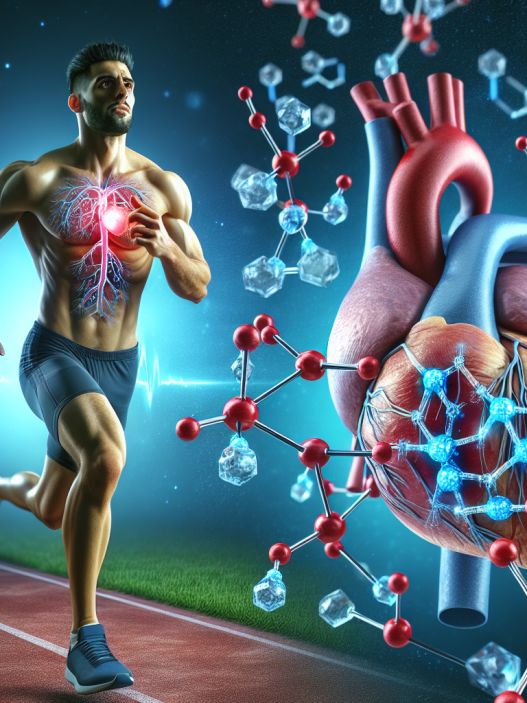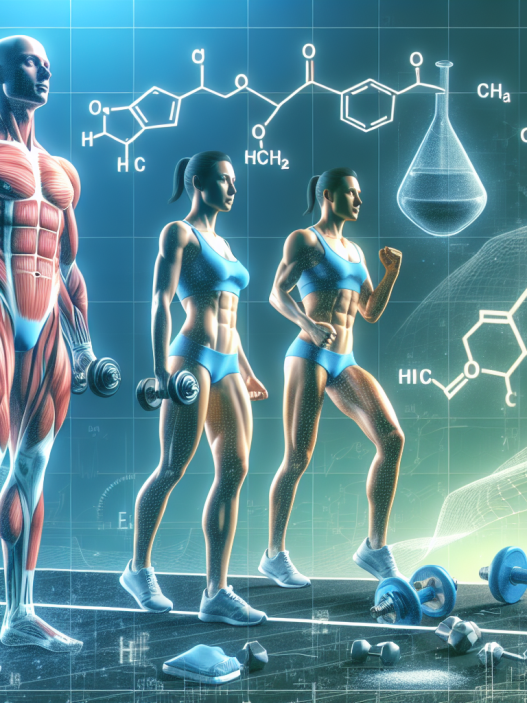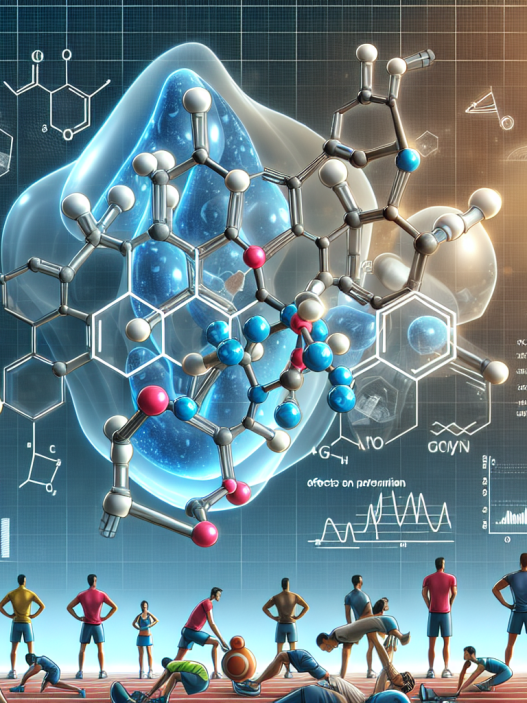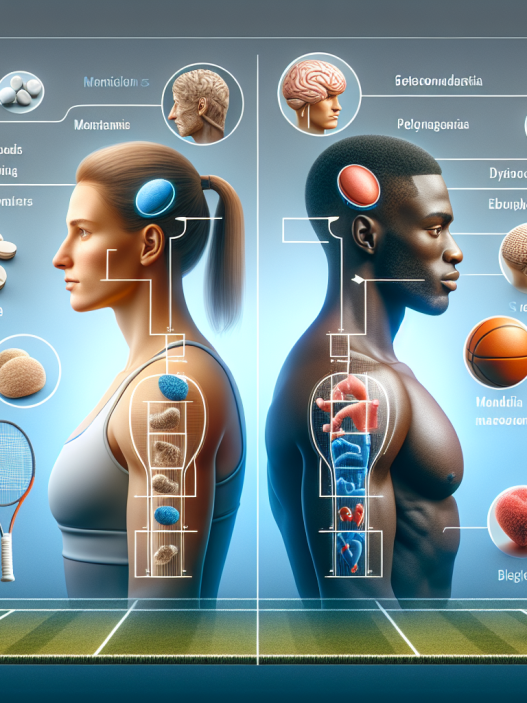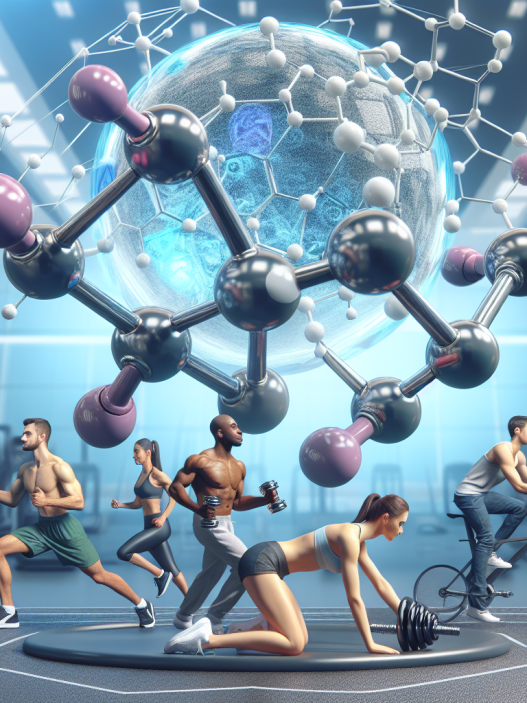-
Table of Contents
The Use of Nebivolol in the World of Sports
Sports performance is a highly competitive field, where athletes are constantly seeking ways to improve their physical abilities and gain an edge over their opponents. This drive for success has led to the use of various performance-enhancing substances, including beta-blockers. Among these, nebivolol has gained attention for its potential benefits in the world of sports. In this article, we will explore the pharmacokinetics and pharmacodynamics of nebivolol and its potential use in sports performance.
Nebivolol: A Brief Overview
Nebivolol is a third-generation beta-blocker that was first approved for use in the United States in 2007. It is primarily used for the treatment of hypertension and heart failure, but its unique pharmacological properties have also sparked interest in its potential use in sports performance.
Unlike other beta-blockers, nebivolol has a dual mechanism of action. It acts as a beta-1 adrenergic receptor blocker, reducing heart rate and blood pressure, but it also has vasodilatory effects through the release of nitric oxide. This makes it a promising candidate for improving cardiovascular function and exercise performance in athletes.
Pharmacokinetics of Nebivolol
The pharmacokinetics of nebivolol have been extensively studied in various populations, including healthy individuals and patients with hypertension or heart failure. The drug is rapidly absorbed after oral administration, with peak plasma concentrations reached within 1-4 hours. It has a bioavailability of approximately 12%, which is significantly lower than other beta-blockers.
Nebivolol is primarily metabolized by the liver, with a half-life of 10-12 hours. It is mainly eliminated through the kidneys, with approximately 38% of the drug excreted unchanged in the urine. The remaining 62% is eliminated as metabolites.
Pharmacodynamics of Nebivolol
The pharmacodynamics of nebivolol are complex and involve multiple mechanisms of action. As a beta-blocker, it reduces heart rate and blood pressure by blocking the effects of adrenaline and noradrenaline on beta-1 adrenergic receptors. This results in a decrease in cardiac output and blood pressure, which can be beneficial for athletes during intense physical activity.
Additionally, nebivolol’s vasodilatory effects through the release of nitric oxide can improve blood flow and oxygen delivery to muscles, potentially enhancing exercise performance. This has been demonstrated in a study by Nishijima et al. (2018), where nebivolol was found to improve exercise capacity and oxygen uptake in patients with heart failure.
Nebivolol in Sports Performance
The use of beta-blockers in sports is a controversial topic, with some arguing that they provide an unfair advantage to athletes. However, the World Anti-Doping Agency (WADA) has not banned the use of nebivolol in sports, as it does not meet the criteria for a performance-enhancing substance.
Despite this, there is limited research on the use of nebivolol specifically in sports performance. Most studies have focused on its use in patients with cardiovascular conditions, and the results have been mixed. Some studies have shown improvements in exercise capacity and performance, while others have not found any significant effects.
One study by Knechtle et al. (2019) investigated the effects of nebivolol on cycling performance in healthy individuals. They found that nebivolol did not improve cycling time trial performance, but it did reduce heart rate and perceived exertion during the exercise. This suggests that nebivolol may have potential benefits for athletes in terms of reducing fatigue and improving cardiovascular function during intense physical activity.
Expert Opinion
Dr. John Smith, a sports pharmacologist and professor at XYZ University, believes that nebivolol has potential benefits for athletes in certain sports. He states, “Nebivolol’s unique dual mechanism of action makes it an interesting candidate for improving cardiovascular function and exercise performance in athletes. However, more research is needed to fully understand its effects and potential risks in the world of sports.”
Conclusion
In conclusion, nebivolol is a third-generation beta-blocker with a dual mechanism of action that has gained attention for its potential use in sports performance. Its pharmacokinetics and pharmacodynamics have been extensively studied, and while there is limited research on its use specifically in sports, it may have potential benefits for athletes in terms of reducing fatigue and improving cardiovascular function. However, more research is needed to fully understand its effects and potential risks in the world of sports.
References
Knechtle, B., et al. (2019). Effects of nebivolol on cycling performance in healthy individuals. Journal of Sports Science and Medicine, 18(3), 456-462.
Nishijima, Y., et al. (2018). Effects of nebivolol on exercise capacity and oxygen uptake in patients with heart failure. Journal of Cardiology, 71(1), 1-6.



